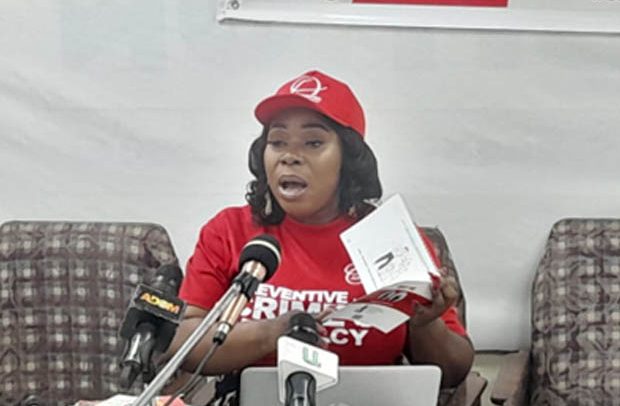Mary Ohenewaa Afful displaying a manual to the press
Human rights lawyer, Mary Ohenewaa Afful, has called on the government to support individuals and organizations leading the fight against human rights violations and domestic abuse.
Speaking at a press conference to outdoor some educational manuals on ‘preventive crime’ and offences that bother on domestic and sexual abuse in Accra, she said given the rate of human rights abuse especially defilement cases recorded in recent times, it was imperative that steps are taken to address the challenge.
According to her, having worked on various human rights cases for the past 14 years, she decided to author a number of books to help educate the public.
She mentioned that given the high incidence of these human rights violations, she is seeking for assistance to enable her print and distribute at least 10 million copies of some manuals such as ‘Preventive Crime’ as well as 1 million copies of other books on ‘Abuse’ for children.
She stated that cases involving individuals who were killed especially through intimate partner violence could have been prevented if there were preventive measures or some form of intervention.
She said, “I have said many times that it is not enough to even arrest and prosecute offenders and make them suffer the penal consequences. My problem is the victim of abuse. What happens to them and the damage caused to their person and the violation of their personal boundaries. How do they handle their health and perhaps the psychological implications”?
She, therefore, appealed to the government and relevant stakeholders to provide financial support to enable her make educational materials that highlight the consequences of the offences in order to deter people especially the youth from committing such offences.
She also appealed to the government to immediately implement section 8(3) of the Domestic Violence Act, 2007 (ACT 732) on Free Medical Care by the State for victims of abuse and also focus on crime prevention to reduce the huge number of cases at the courts, prisons, DOVVSU and other state institutions.
By Ebenezer K. Amponsah


